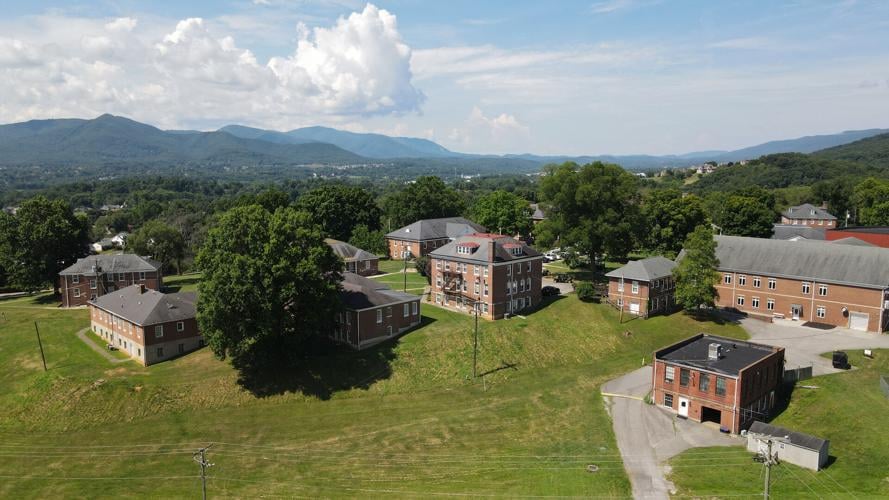Five separate lawsuits have been filed against the Salem City Council and HopeTree Family Services following the councilŌĆÖs recent rezoning of the HopeTree property.
Paul Dotson, Carol Dotson, Terry Langfitt, Ashleigh Langfitt and Carlos B. Hart Jr. filed lawsuits Tuesday challenging the councilŌĆÖs decision to rezone the HopeTree property from residential single family to planned unit development. That decision allows HopeTree, formerly known as Virginia Baptist ChildrenŌĆÖs Home, to move forward with its plan of selling 37 of its 62 acres to a developer, who will then build up to 340 residences and a handful of businesses.
It would be the largest development of its kind in the cityŌĆÖs history.

Recently filed lawsuits against the Salem City Council and HopeTree Family Services challenge the council's decision to rezone the HopeTree property from residential single family to planned unit development.┬Ā
HopeTree officials have said they decided to pursue the sale of portions of the property in part to be able to continue to operate the services it provides.
People are also reading…
HopeTree was founded in 1890 as The Baptist Orphanage of Virginia. At its peak, the campus once housed more than 250 children at a time. However, due to changes in regulations of how organizations house and care for children, HopeTree can only have 16 children living on-site at once now.

HopeTree Family Services will undergo development with a goal to further integrate into the Salem community, according to an approved plan.
HopeTree declined to comment on the lawsuits Thursday, and no one from the city could immediately be reached Thursday afternoon.
The Salem City Council voted 3-2 for the rezoning at its June 24 meeting. That came after months of debate and community opposition to the proposal.
The city Planning Commission also recommended approval of the rezoning by a 3-2 vote in April.
Two commission members comments that night summed up the debate between those in favor and those against:
Commission member Reid Garst, who voted yes, called the development plan ŌĆ£much, much betterŌĆØ than a typical housing development that could have rows of ŌĆ£cookie-cutterŌĆØ houses. He predicted it could enhance north Salem like the historic neighborhood along North Broad Street.
But commission member Neil Conner, who voted no, called the proposal ŌĆ£completely incongruent with the area.ŌĆØ If built as proposed, ŌĆ£weŌĆÖre all going to feel a little bit of regret,ŌĆØ Conner said.
A GoFundMe was created July 10 to fund a legal pursuit. As of 2 p.m. Thursday, it had raised $1,575 of its $15,000 goal.

A museum at HopeTree Family Services, which has been around since 1890 as an orphanage, shows a what a child might have had in their room.
The lawsuits allege that the councilŌĆÖs approval of the rezoning ŌĆ£was not only misguided, but done in violation of applicable law,ŌĆØ which it claims makes the decision ŌĆ£subject to review and reversalŌĆØ by the court. The lawsuit cites a number of purported violations of Virginia Code, including the councilŌĆÖs failure to properly notify citizens of public hearings on the project and Salem Mayor Ren├®e TurkŌĆÖs failure to give a reason as to why she participated in the councilŌĆÖs June 24 meeting remotely. Turk stated during the meeting that she was out of town; the lawsuits argue that this reasoning was not specific enough. Plaintiffs point to a section of the Virginia Code that states that members participating in a meeting remotely for a personal matter must identify ŌĆ£with specificity the nature of the personal matter.ŌĆØ
One plaintiff lives directly across the street from the property, while the remaining four reside in homes directly next to it, according to court documents. The lawsuits claim that the HopeTree project will ŌĆ£irreparably harmŌĆØ the plaintiffs by reducing their property values, increasing traffic congestion and adversely affecting their ŌĆ£ability to quiet enjoymentŌĆØ of their properties.
Jury trials are demanded by the lawsuits on ŌĆ£all issues so triable.ŌĆØ
The commercial uses within the project, which were permitted by the rezoning decision, ŌĆ£are fundamentally inconsistent with the surrounding neighborhoods,ŌĆØ the lawsuits claim.
According to court documents, the plaintiffs want the HopeTree Rezoning to be declared void, but they also want HopeTree to be permanently prohibited from moving forward with the project as it was permitted by the rezoning.
ŌĆ£The public interest will be served by enjoining HopeTree Owner from developing the Parcels as permitted by the HopeTree Rezoning because the HopeTree Rezoning is itself not in the public interest,ŌĆØ the lawsuits read.
John Fishwick of ┬ķČ╣┤½├Į╣┘═° is the attorney for the five plaintiffs.
ŌĆ£We look forward to moving ahead with their cases,ŌĆØ reads a statement Fishwick released on Thursday.
















